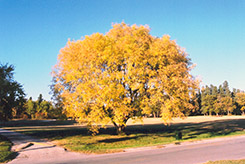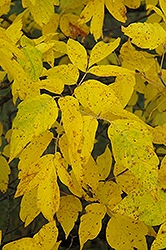Height: 45 feet
Spread: 50 feet
Sunlight:
![]()
Hardiness Zone: 2
Other Names: Manitoba Maple
Description:
One of the toughest, most durable and hardiest of all shade trees, capable of growing in the most inhospitable of locations; fast growing, tends to have weak wood and prone to insect troubles, but indispensable for its tenacity
Ornamental Features
Boxelder has emerald green deciduous foliage on a tree with a round habit of growth. The compound leaves turn yellow in fall. However, the fruit can be messy in the landscape and may require occasional clean-up.
Landscape Attributes
Boxelder is a deciduous tree with a more or less rounded form. Its relatively coarse texture can be used to stand it apart from other landscape plants with finer foliage.
This is a high maintenance tree that will require regular care and upkeep, and should only be pruned in summer after the leaves have fully developed, as it may 'bleed' sap if pruned in late winter or early spring. Gardeners should be aware of the following characteristic(s) that may warrant special consideration;
- Messy
- Insects
Boxelder is recommended for the following landscape applications;
- Shade
- Windbreaks and Shelterbelts
Planting & Growing
Boxelder will grow to be about 45 feet tall at maturity, with a spread of 50 feet. It has a high canopy of foliage that sits well above the ground, and should not be planted underneath power lines. As it matures, the lower branches of this tree can be strategically removed to create a high enough canopy to support unobstructed human traffic underneath. It grows at a fast rate, and under ideal conditions can be expected to live for 50 years or more.
This tree should only be grown in full sunlight. It is an amazingly adaptable plant, tolerating both dry conditions and even some standing water. It is not particular as to soil type or pH. It is highly tolerant of urban pollution and will even thrive in inner city environments. This species is native to parts of North America.

